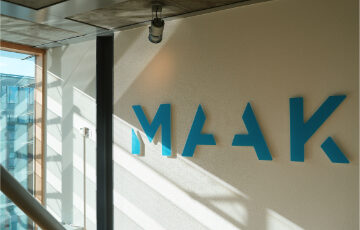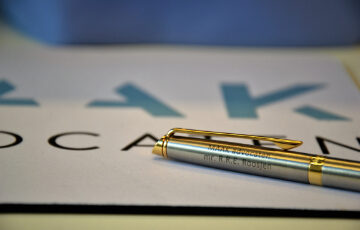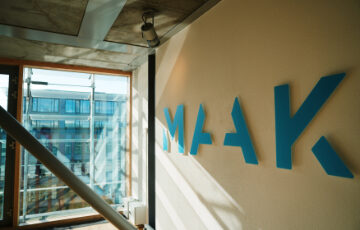
As a Dutch legal expert, I have seen firsthand how a license agreement in the Netherlands can help protect both individuals and businesses from potential problems down the road. They provide clarity on what each party’s responsibilities are in order to make sure everyone gets fair treatment when it comes to money changing hands or goods being exchanged. Without such contracts in place, disputes could arise leading to costly litigation and time wasted trying to resolve conflicts rather than focusing on growth opportunities.
In this article we will explore the ins and outs of license agreements in the Netherlands: what they entail, why they matter, who should use them, and more. We hope that by explaining these concepts clearly you will gain a better understanding of how license agreements under Dutch law work so you can confidently enter into your own contract negotiations knowing exactly what you need to do to stay protected legally.
Overview Of Dutch Licensing Laws
The Dutch licensing laws are designed to protect both the licensor and licensee. A license agreement in the Netherlands should be tailored specifically for the needs of each party involved. It is important to understand these regulations before drafting any licensing agreement.
In general, a Dutch licensing agreement will include details such as the duration of the contract, payment terms, intellectual property rights, obligations of each party, and termination clauses. The parties may also choose other provisions that suit their particular situation. All agreements must comply with local legislation governing licenses in the Netherlands, including those related to copyright law and antitrust regulation.
When considering a netherlands licensing agreement it is essential to seek legal advice from an experienced attorney who can provide guidance on which license regulations apply based upon the specific circumstances of your case. This will ensure that all parties fully understand their rights and obligations under Dutch law while drafting a license agreement in the Netherlands. With this information at hand, you can confidently move forward towards successful completion of your license agreement in the Netherlands.
Drafting a License Agreement In The Netherlands
Drafting a license agreement in the Netherlands can seem like walking through an obstacle course. It’s essential to plan ahead, as there are many licensing requirements and regulations that must be followed. But with careful consideration and attention to detail, it is possible to successfully negotiate a Dutch licensing agreement! Let us guide you through this process:
- Gather all relevant information about the parties involved in the proposed contract. This will help determine what needs to be included in the agreement, such as rights granted, obligations of each side, payment details, etc.
- Research the applicable laws and regulations related to licensing agreements in the Netherlands. You need to ensure that your agreement complies with these rules if you want it to be legally binding upon signing.
- Draft your document using clear language so that both parties understand their respective roles and responsibilities under the terms of the contract. Make sure to include any specific items agreed upon during negotiations so they are incorporated into the final version of the document.
- Once everything has been written down and approved by both sides, have it signed off on by all necessary parties before making it official! With thorough preparation and knowledge of Dutch licensing requirements, anyone can confidently draft a successful license agreement in The Netherlands.
Intellectual Property Licensing In The Netherlands
Intellectual property licensing in the Netherlands is governed by contract law. Parties involved in a Dutch licensing agreement must ensure that its terms are enforceable under applicable law and regulation. This includes copyright, patent, trademark, trade secret and other forms of intellectual property rights. It should be noted that dispute resolution process will vary depending on the type of IP right being licensed.
The parties to a Dutch licensing agreement should also consider how they will resolve any disputes arising out of or related to the license agreement. A well-drafted license agreement should include provisions specifying which court or arbitration tribunal shall have jurisdiction over any dispute between them. Additionally, it may provide for alternative dispute resolution methods such as mediation or expert determination. The aim here is to reduce legal costs and time spent resolving issues without resorting to litigation.
In order to maximize enforcement of an Intellectual Property Licensing Agreement in the Netherlands, both parties need to understand their respective obligations under the contract and abide by their contractual commitments. As such, having a clear understanding of dutch licensing agreement terms is essential before entering into a binding obligation with another party. Moving forward from this section about Intellectual Property Licensing in the Netherlands, we’ll look at enforcing a license agreement within the country’s legal framework.
Enforcing a License Agreement In The Netherlands
Enforcing a license agreement in the Netherlands is no easy feat. The dutch licensing agreement dispute resolution procedures, strategies and approaches can often be complex and difficult to navigate. In order to ensure that all parties involved abide by their contractual rights and obligations, it is important for both parties to understand the potential outcomes of litigation regarding a Dutch licensing agreement.
When attempting to enforce a license agreement in the Netherlands, one should always first seek out alternative dispute resolution mechanisms such as arbitration or mediation before resorting to litigation. This will help to avoid costly legal proceedings if possible. If an amicable solution cannot be reached through these methods, then going through court proceedings may become necessary. It is also important for either party to take into account any local laws which could affect the outcome of their case when taking action against another party within the Netherlands.
The law surrounding enforcing a license agreement in the Netherlands differs from other countries due to its unique requirements and regulations. Therefore, seeking professional advice from experienced lawyers with expertise in this area would be beneficial in ensuring that your interests are adequately protected throughout the process. With proper guidance and understanding of dutch licensing agreement dispute resolution policies, you can ensure your success in resolving disputes involving licenses issued according to Dutch law.
Negotiating a License Agreement In The Netherlands
Negotiating a license agreement in the Netherlands can be an intimidating process, but understanding the basics is essential for successful completion of such agreements. As an example, Dutch licensing terms are notoriously complex and must be thoroughly reviewed before signing any contract. To guarantee that all parties involved understand their rights and obligations under the agreement, here are four key steps to take when drafting a license agreement in the Netherlands:
- Gather relevant documentation – Before entering into negotiations, it’s important to collect as much evidence as possible regarding the specifics of each party’s interests. This includes gathering information on both sides’ assets, liabilities, licenses held by other companies or individuals, contracts with third-parties, etc.
- Understand applicable laws – It’s crucial to assess which laws may apply to your particular situation and make sure they’re included within the scope of the license agreement. Laws governing intellectual property rights and consumer protection should also be taken into account during this review stage.
- Define roles & responsibilities – When preparing a license agreement in the Netherlands, clearly define who will have control over what aspects of the deal. Be explicit about which party has authority over certain activities or decisions related to use of licensed products/services (e.g., development costs). Additionally, ensure that provisions exist for dispute resolution should disagreements arise between parties down the line.
- Review language carefully – Finally, pay close attention to how language is used throughout the document; double check phrases like ‘termination upon breach’ so everyone understands exactly what happens if one side fails to uphold its end of the bargain.
The time invested in these steps can save significant headaches down the road when it comes time for termination of a license agreement due to noncompliance or dissatisfaction with results obtained from using licensed materials/products/services .
Termination Of a License Agreement
A licence agreement in the Netherlands can be terminated in various ways. Depending on the type of agreement, the parties and the circumstances, there may be special provisions that a licensee must comply with when terminating the agreement. In addition, it is important that the parties make clear the consequences of terminating a contractual obligation. To ensure that licensing is handled correctly according to the laws and regulations in the Netherlands, it is necessary that all parties involved understand their rights when it comes to entering into and/or terminating aa licence agreement.
First of all, it is important to establish whether the agreement allows for interim termination. If it does, then the person who wants to terminate must meet specific requirements as stipulated by Dutch legislation on licensing agreement enforcement. Alternatively, unilateral action can be taken; this includes written withdrawal of consumer goods or product categories for which the licensing requirement was valid. In addition to formal procedures, options factor weighting should be considered with respect to financial compensation in case of legal breach of obligation under the licensing agreement.
Finally, it is essential that all parties involved inform about possible consequences in case of termination of aza licence agreement in the Netherlands – especially when there is permanent interaction between parties after its conclusion. There are specific terminating clauses for each clause, which makes litigation prevention possible under Dutch law. This enables necessary measures to be taken to prevent breaches of licence contracts.
Breach Of a License Contract
When a licensing agreement is breached in the Netherlands, it can lead to costly and time-consuming litigation. To avoid such complications, it is important to have an experienced license lawyer review any agreements you make before signing them. When determining if a breach has occurred or not, there are certain criteria that must be considered:
- Is there evidence of non-compliance with the terms of the contract?
- Are both parties equally responsible for upholding their contractual obligations?
- Has one party acted unfairly or unreasonably towards the other?
- Have either party failed to exercise due diligence when entering into the contract?
The legal system in the Netherlands takes these factors into consideration when assessing whether a breach of license contracts has taken place. In addition, any damages caused by such a breach may also need to be quantified and compensated accordingly. A knowledgeable license lawyer in the Netherlands will understand how best to navigate this complicated process. As such, getting professional advice from an expert who understands Dutch laws surrounding license agreements should always be sought after prior to engaging in any kind of dispute resolution proceedings. By doing so, parties involved will ensure they receive fair treatment throughout the entire process.
Litigation Regarding a Dutch Licensing Agreement
When a breach of a Dutch licensing agreement arises, it is important to understand the available options for litigation. The Netherlands has laws governing contract disputes that protect both parties involved in a licensing agreement and provide avenues for dispute resolution. In general, these agreements are governed by civil law according to the Civil Code of the Netherlands (Burgerlijk Wetboek).
In terms of filing suit against an alleged contractual breach or violation, plaintiffs may bring their claims before either a district court or arbitration tribunal. This depends on whether there is an existing clause within the license agreement that stipulates which forum shall be used in case of dispute. If no such provision exists then the courts will decide where the claim should be brought forward. Plaintiffs must also note that if they do not initiate legal action within one year after discovering a breach, they will lose their right to pursue any kind of remedy thereafter.
The rules pertaining to licensing contracts in the Netherlands dictate how certain types of damages can be awarded when breaches occur; this includes punitive damages as well as economic losses resulting from non-performance under the contract. It is therefore essential to have professional assistance when attempting to litigate a licensing agreement dispute so that all rights and remedies available are pursued appropriately. Furthermore, understanding what type of relief can be sought through litigation helps ensure effective negotiation with potential defendants prior to initiating any formal proceedings. With these considerations in mind, parties seeking resolution for a Dutch licensing agreement must consider dispute resolution methods carefully before making any decisions about taking legal action.
Dispute Resolution For a Dutch Licensing Agreement
In the event of a dispute between two parties, both must agree to abide by Dutch law. This means that any resolution will be subject to interpretation under Netherlands civil code. If an agreement cannot be reached through negotiation or mediation, then each party may have recourse to legal action in court. All proceedings shall take place within the jurisdiction of the courts in The Hague and Rotterdam.
The burden of proof rests on the complainant who needs to demonstrate that their rights were violated due to breach of contract or other wrongful act or omission by one or more parties involved in the licensing agreement. The defendant has the right to challenge any evidence presented against them and make counter-arguments for why they should not be held liable.
Should either party fail to adhere to this agreement, it is possible for a court order of enforcement to be issued which would require compliance with its terms. To avoid such costly measures, disputes should ideally be resolved as soon as possible without resorting to litigation. With this in mind, all parties are urged to use every available tool at their disposal for coming up with mutually acceptable solutions amicably outside of court. Moving forward, we now consider requirements for Dutch licensing agreements…
Requirements For Dutch Licensing Agreements
When entering into a licensing agreement in the Netherlands, all parties must adhere to certain requirements. Firstly, there must be an expressed written contract that outlines the terms and conditions of the license. This document should be signed by both parties to ensure each party’s obligations are clearly stated. Secondly, consideration is required for any valid Dutch license agreement; this means that one party must transfer something of value in exchange for the rights granted under the license. Finally, it is important to note that neither party can limit or exclude its liability through contractual arrangements where such limitation would restrict or prohibit claims made by consumers against either side as per Dutch law. With these criteria met, we can move on to discuss procedure for drafting and enforcing a Dutch license agreement.
Procedure For Drafting And Enforcing A Dutch License Agreement
When drafting a license agreement in the Netherlands, parties should consider their rights and obligations under Dutch law. The primary purpose of any contract is to protect both parties from potential risks or liabilities. As such, it is important for all involved parties to understand the terms of the agreement before signing it. To ensure that the contract meets legal requirements, consulting with a lawyer familiar with Dutch licensing laws is advised. Such an individual can provide invaluable advice regarding issues such as liability and indemnification clauses, dispute resolution options, time limits on enforcement actions, etc. Furthermore, they may be able to identify areas where additional protection may be necessary. By taking these steps prior to signing a license agreement in the Netherlands, parties can avoid future disputes and complications when enforcing its provisions down the line.
Consulting a Lawyer For Licensing Agreements In The Netherlands
When negotiating a license agreement in the Netherlands, it is important to obtain legal advice. Consulting with an experienced lawyer can help ensure that your interests are protected and all necessary provisions have been included in the contract. Here are four reasons why you should consult a lawyer when entering into a licensing agreement:
- Knowledge of Dutch law – A professional attorney will be able to advise on the legal requirements under Dutch law, helping you comply with all applicable regulations.
- Contractual language – The wording used in contracts must be precise and unambiguous so that both parties understand their rights and obligations fully. An experienced lawyer can draft or review a contract for accuracy and clarity.
- Negotiation skills – Negotiations over terms of a license can often be complex and time-consuming; having a skilled negotiator by your side can make sure that any disputes are resolved quickly and fairly, while also protecting your interests throughout the process.
- Risk management – A knowledgeable attorney will be able to identify potential risks associated with the license agreement, such as breach of contract or intellectual property infringement, advising how best to mitigate these risks before they become an issue down the line.
A good lawyer can provide invaluable assistance when negotiating a licensing agreement in the Netherlands; seeking out professional advice at this stage is essential if you want to ensure that everything goes smoothly during negotiations and beyond. With that said, let us now turn our attention to copyright licensing agreements in the Netherlands.
Copyright Licensing Agreements In The Netherlands
The ball is in the court of Dutch copyright law when it comes to licensing agreements. As a nation, the Netherlands has adopted strong laws and regulations designed to protect intellectual property, including copyrights. These include all types of creative works such as films, music, books, photographs, artwork, and software code. In addition to these protections for authors and creators, there are also provisions that allow businesses to license copyrighted materials from their owners or producers.
In order to enter into a legal agreement for use of another’s copyright material in business operations, companies must first acquire permission from the holder of the rights. This can be done through formal contracts or informal negotiations depending on the scope of usage desired by each party involved. It is important for both parties to have a clear understanding of what kinds of uses are permissible under the terms of any contract they enter into so that no one will be held liable if something goes wrong down the line. Additionally, compensation should always be discussed before entering into an agreement with either explicit terms or vague promises made verbally.
When looking at copyright licensing agreements in the Netherlands, it is essential for companies to understand their legal obligations and ensure that they are compliant with applicable legislation within this region. By doing so not only will businesses avoid costly fines or potential lawsuits but also enable them to benefit from utilizing other people’s work while adhering to ethical standards set forth by Dutch law enforcement agencies. With this knowledge regarding copyright licencing agreements in hand, businesses can make informed decisions about how best to move forward given their individual circumstances and goals. The impact of Dutch licensing regulations on businesses can then be properly assessed in order to determine whether taking advantage of available licenses would be beneficial overall or not worth pursuing at all.
Impact Of Dutch Licensing Regulations On Businesses
Licensing regulations in the Netherlands can have a significant impact on businesses. Companies must adhere to all applicable laws and rules regarding licensing, which are usually quite strict. It is essential for companies operating in the country to understand how these specific requirements affect their business operations. This requires an understanding of Dutch law as well as the specifics of each particular license agreement that they enter into.
The most important consideration when entering into a licensing agreement with the Netherlands is compliance with local laws and regulations. Companies should review any documents they sign carefully and make sure they fully comply with all relevant legislation. Any breach of these obligations could result in serious legal consequences, including fines or even revocation of licenses. Companies must also be aware of potential liabilities arising from non-compliance, such as civil liability for damages caused by negligence or other violations of Dutch law.
It is therefore necessary for companies to conduct thorough research before signing any agreements related to licensing in the Netherlands, so that they can ensure full compliance and minimize risk associated with their activities. With this knowledge, businesses can assess both the benefits and risks involved in entering into a license agreement with the Netherlands more effectively.
Benefits And Risks Of Entering Into A License Agreement With The Netherlands
Entering into a license agreement with the Netherlands can be beneficial for both parties. It allows for greater protection of intellectual property and ensures that any disputes are resolved in accordance with Dutch law. This may provide some assurance to businesses operating in the country, as they will know their rights regarding intellectual property. Additionally, an effective licensing agreement can help secure exclusive access to certain markets or technologies that would otherwise not be available.
However, entering into such an agreement also carries some risks. For example, there is always the risk of counterparty default if one party fails to meet its obligations under the contract. Furthermore, it is important to ensure that all terms of the agreement are clearly defined so that each party understands its responsibilities and liabilities. Finally, even after signing a contract, companies should continually monitor compliance and performance standards to avoid potential problems down the line.
Frequently Asked Questions
What Are The Time Limits For Negotiating A Dutch Licensing Agreement?
Negotiating a Dutch licensing agreement is like taking the first steps in a long journey. It’s important to understand what awaits you along this path before setting out, and that includes understanding the time limits for reaching an agreement. This article will discuss how much time typically goes into negotiating a Dutch licensing agreement, so that those involved can be aware of any potential delays or limitations on their process.
In general, it takes between two and three months to negotiate a Dutch license agreement from start to finish. The exact amount of time depends largely on the complexity of the contract as well as other factors such as whether there are multiple parties involved and how quickly each party responds throughout the negotiations. In some cases, with simpler agreements and fewer parties involved, negotiations may take less than two months to complete; however, more complex contracts could require significantly longer periods of negotiation.
It’s also important to note that while most negotiations should not exceed three months in duration, if additional aspects arise during the course of discussions then these too must be taken into consideration when determining timeline expectations. Additionally, if one or more parties fail to respond promptly or at all during negotiations then this could lead to further delays or even cause expiration of certain deadlines within the agreement itself. As such, it’s essential for all sides involved in negotiating a Dutch license agreement to remain engaged throughout the process in order to ensure timely completion.
Therefore, those looking enter into such an agreement should keep these timelines in mind when beginning negotiations – being aware of both expected durations as well as possible extensions due unforeseen circumstances – so that they can plan accordingly and avoid any unnecessary delays down the road.
What Types Of Intellectual Property Can Be Licensed In The Netherlands?
When it comes to licensing intellectual property in the Netherlands, there are a variety of different options available. In this article, we’ll explore what kinds of IP can be licensed and how.
The Dutch legal system recognizes four main types of intellectual property that can be subject to a license agreement: copyrights, trademarks, patents and trade secrets. Copyrights protect original works such as books, films and music, while trademarks cover logos or names used to identify products or services. Patents provide protection for inventions with industrial applications by preventing competitors from copying them within the country where they are registered. Finally, trade secrets refer to information that is kept confidential so that only those who have access can benefit from it; examples include recipes or customer lists.
In terms of licensing agreements in the Netherlands, parties must adhere to certain regulations set out by law when negotiating a contract. For instance, both parties must act in good faith during negotiations and should aim to reach an equitable outcome. Furthermore, any transfer of rights related to intellectual property needs to be documented in writing before being finalized and all contractual obligations must be fulfilled according to the agreed-upon conditions.
It’s important for businesses operating in the Netherlands to understand their respective rights and responsibilities when entering into a license agreement involving one or more forms of IP. Negotiations need to take place with due diligence and care – failure on either side could result in costly disputes down the line.
Is a Lawyer Required To Draft a License Agreement In The Netherlands?
A lawyer is not necessary in order to draft a license agreement; however, it can prove extremely advantageous. When entering into any legal contract, it is important that the parties involved understand their rights and obligations fully. An experienced attorney will be able to provide invaluable advice as well as help protect your interests throughout the process. Here are three key reasons why you should consider enlisting an expert for drafting a license agreement:
- Expertise: A lawyer specializing in Dutch law will have extensive knowledge of the relevant laws and regulations surrounding licenses agreements, thus ensuring that all aspects of the agreement comply with local statutes.
- Negotiation skills: Attorneys are proficient negotiators who can assist you in negotiating a favorable outcome when brokering terms. They possess specialized techniques which enable them to achieve results beneficial to both parties quickly and efficiently.
- Structure and clarity: Experienced lawyers know how to structure contracts properly and can ensure that clear language is used so everyone understands their respective roles and responsibilities within the agreement precisely.
If you want to draw up a licence agreement under Dutch law, you should definitely consider seeking help from a Dutch lawyer to minimise the chances of misunderstandings between parties and optimally protect your interests within the process. A lawyer with expertise on Dutch law can support you by giving advice based on their extensive knowledge and skills as a negotiator, creating clarity regarding obligations and rights of all parties involved within the agreement.
How Does The Dutch Legal System Handle Breach Of a License Contract?
When it comes to breach of a license contract, the Dutch legal system is quite strict. A party that breaches a license agreement can be held responsible for any damages caused by their wrong-doing. The court has the right to order compensation or fines in such cases. Moreover, when one party fails to fulfill its obligations under the terms of the agreement, the other parties may seek an injunction as well as damages and interest payments from them.
In addition, if there is evidence that a breach occurred due to malicious behavior on behalf of either party, then criminal proceedings might also take place. This could result in imprisonment or other serious penalties being imposed upon those found guilty of breaching the contract. Furthermore, if one party does not comply with an order issued by the court regarding payment of damages, this may lead to seizure of assets belonging to them or even bankruptcy proceedings against them.
Therefore, it is essential for all parties involved in a license contract to abide by its provisions and ensure they are fulfilling their contractual obligations correctly at all times so as to avoid potential liability issues down the line. Ignorance of one’s duties cannot be used as an excuse should any disputes arise in regards to compliance with contractual obligations.
Are There Any Tax Implications Of Entering Into a License Agreement With The Netherlands?
When entering into a license agreement, it is important to consider the legal and fiscal implications. In the Netherlands there are certain tax obligations that must be taken into account when drafting such an agreement. This article will examine those considerations in detail.
First of all, it should be noted that any fees or royalties paid under the terms of the license agreement may be subject to Dutch corporate income tax (CIT). The exact rate of CIT imposed depends on the nature of the transaction as well as other factors relating to the parties involved. When calculating CIT payable, consideration should also be given to potential exemptions from CIT which may apply in certain circumstances.
Furthermore, depending on how payments for services under a license agreement are structured, they could potentially fall within the scope of Dutch withholding taxes (WHT) rules. WHT applies generally where one party makes payments to another outside of its home country and can range between 15-25%. As with corporate income tax, some exceptions may apply so it is important to assess each situation individually before making decisions regarding payment structure.
In addition to this, Value Added Tax (VAT) also needs to be taken into account when negotiating a license agreement with a company based in the Netherlands. VAT is charged at 21%, although this can vary according to who you’re dealing with and what type of service you’re providing – again requiring individual assessment by both parties prior to coming to an arrangement over payment terms etc.
Given these complexities surrounding taxation issues related to licensing agreements negotiated in the Netherlands, legal advice should always be sought beforehand in order ensure compliance and avoid disputes down the line.
License attorney in the Netherlands
As a Dutch legal expert, I can confidently say that when entering into a licensing agreement in the Netherlands, it is important to understand all of the regulations and laws governing such agreements. It is essential to know what types of intellectual property are eligible for licensing, as well as how long you have to negotiate an agreement. Additionally, having a lawyer draft up the agreement will ensure its legitimacy and compliance with local laws. Furthermore, if there is ever a breach of contract, the Dutch legal system has rules in place to handle this situation fairly. Lastly, be aware of any potential tax implications associated with your license agreement; these need to be taken into account when determining whether or not an agreement is suitable for you. All in all, understanding each aspect of licensing requirements in the Netherlands will help make sure your rights are protected and that both parties benefit from the arrangement.
Get in Touch with Our Experienced Dutch Legal Team
If you have any questions or require legal assistance, please don’t hesitate to reach out to our knowledgeable and dedicated team at our Dutch law firm. We are committed to providing exceptional legal services and personalized attention to address your unique needs. You can contact us through our website, via email, or by phone. Our friendly and professional staff will be more than happy to assist you and schedule a consultation with one of our expert attorneys in the Netherlands, for example a Dutch litigation attorney or contract lawyer in the Netherlands in Amsterdam. We look forward to the opportunity to help you navigate the complexities of the legal landscape and achieve the best possible outcomes for your case. Feel free to contact our license attorneys in the Netherlands, Amsterdam, for all your inquiries. We have the experience that you require.
The content provided on this legal blog is intended for general informational purposes only and should not be construed as legal advice or a substitute for professional legal counsel. While we strive to ensure the accuracy and timeliness of the information presented, we cannot guarantee its completeness or applicability to your specific circumstances. We encourage you to consult with a qualified attorney for advice regarding your individual legal matters. The content on this blog may be subject to changes or updates without notice, and we disclaim any responsibility for any errors or omissions in the information provided.







